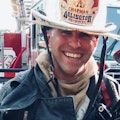Walk into any fire academy and you likely will see a poster outlining the “Rules for Rookie Firefighters.” These principles—check your equipment, wear your PPE, seek out senior firefighters—have stood the test of time. Although not technical, they form the foundation for success in the fire service.
As a newly promoted battalion chief (BC), I sought guidance from books, mentors and podcasts. The 12 principles that are listed below represent the most critical leadership lessons that I learned. They don’t replace experience, but they help to shape a successful path forward.
1. Substance Over Style
Promotion brings perks—department vehicles, shiny helmets, official email signatures—but don’t get distracted by the aesthetics. As Stephen Covey, who is the author of “The 7 Habits of Highly Effective People,” said, “Keep the main thing the main thing.” Focus on learning and performing your job to the best of your ability, whether it’s creating a shift schedule, commanding an incident or managing personnel.
2. Seek the Critics
As your role expands, so will the number of people who report to you. Some might remain your friend. Others might flatter you to gain favor. Be cautious. True growth comes from honest feedback, not empty praise. Seek out constructive critics who care enough to help you to improve.
3. Solutions, Not Problems
The modern fire service does far more than fight fires. We’re problem solvers and handle everything from hazmat incidents to lift assists. Don’t be the person who identifies problems without offering solutions. Cultivate a mindset that mirrors our field operations: adaptive, creative and focused on resolution.
4. Walk, Don’t Talk
At the BC level, people always are watching. Are you working out, wearing the uniform properly, and modeling the culture that you expect others to follow? Leadership isn’t about what you say; it’s what you do. Grand speeches matter less than daily actions do.
5. Train
The Marine Corps credo “Every Marine a rifleman” applies just as well to the fire service as it does to the Corps. Whether you’re in a command vehicle or an office, training remains your responsibility. Stay sharp, not only for your own credibility but so you can support your crews effectively. Get out of the office, train harder than your team and maintain your operational edge.
6. Plan for the Worst
A sticker in one of my department’s pumpers reads, “Expect fire, expect victims.” As an incident commander, treat every call as though it could be The Big One. Don’t wait until it’s too late to start tracking crews or anticipating problems. The call that defines your career will come when you least expect it. Stay prepared.
7. Pay Attention
This job requires focus, not genius. Pay attention to what’s said at the kitchen table, to how your stations operate and to what your crews are dealing with. Set clear daily expectations. Being present and observant can prevent issues and help your battalion to run smoothly.
8. Support Your People
Your battalion doesn’t work for you. You work for them. Your job is to make their job easier and more effective. That could mean advocating for training, ensuring timely resource requests or fixing payroll issues. When they succeed, the credit is theirs. When they fail, the responsibility is yours.
9. Invest in Your People
Do you genuinely care about your team? Do you know the names of their significant other and children and what’s going on in their lives? This isn’t about being overly personal; it’s about building trust. When people know that you care, they’re more likely to come to you with concerns or ideas. Build that connection. Author Simon Sinek said it best: “Leadership is not about being in charge. It’s about taking care of those in your charge.”
10. The Devil Is in the Details
Little things become big things when they’re ignored. Don’t dismiss small personnel issues, fireground accountability lapses or operational oversights. Fix them early. That mindset helps to prevent future headaches and ensures consistent performance.
11. Understand Resistance
We all have heard the complaints—about training, policies or decisions from above—but behind every grumble might be a valid concern. Complaints often stem from fear: fear of failure, change or the unknown. As BC, address these concerns head on. Lead the way during difficult drills. Explain policies more clearly. Take the time to understand, and you often reduce the resistance.
12. Challenge the Established, Question the Status Quo
Just because “it’s always been done that way” doesn’t make it right. Seek input from those who think differently—even the so-called whiners. They might see opportunities that others overlooked. Challenging norms can lead to meaningful improvements and even reengage disengaged members.
Indispensable fundamentals
The fire service is built on solving other people’s problems. Our success depends on focus, initiative and a willingness to lead by example. The 12 principles that are listed above aren’t just helpful; they’re essential for any BC who’s committed to having a lasting effect.

